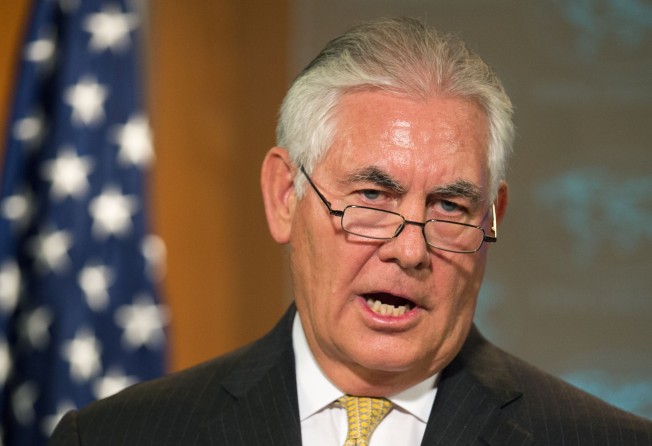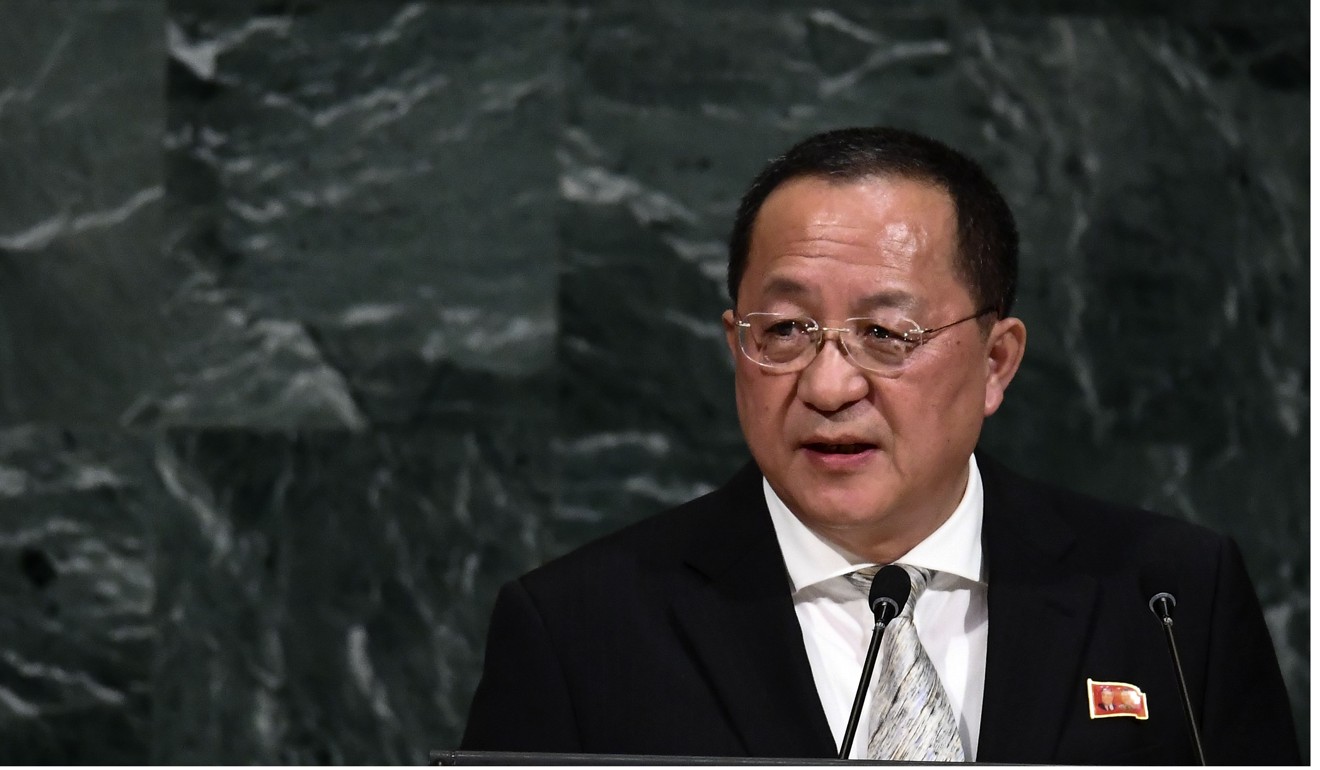US, North Korea balk at using back channels to discuss a halt to Pyongyang’s nuclear weapons programme
Unused channels include Pyongyang’s UN representative, US civilians and North Korean diplomats meeting in a third country and Sweden’s Pyongyang embassy

The US and North Korea have three direct back-channels to talk about American prisoners and broad bilateral relations, but have not used them for formal negotiations on Pyongyang’s nuclear weapons programme, analysts say.
The channels include Pyongyang’s representative at the United Nations in New York, informal dialogue between US civilian experts and North Korean diplomats in a third country, and the Swedish embassy’s representing the US’s interests in Pyongyang.
Douglas Paal, vice-president for studies at Carnegie Endowment for International Peace in Washington, said in an email to the South China Morning Post that the three channels have not been used for formal US-North Korea bilateral talks because “the North is not quite far enough in its weaponisation to believe it has enough leverage to force concessions from the US”.
“The US believes its new sanctions need to bite before the North will yield,” Paal said. “But the moment is coming faster than most estimate will be needed for the sides to realise they need to talk seriously.”
There are no formal diplomatic relations between the two countries.
After two self-claimed successful intercontinental ballistic missile tests and the sixth nuclear test in July and September, North Korean Foreign Minister Ri Yong-ho told world leaders at the UN summit on September 23 in New York that his nation is “finally only a few steps away from the final gate of completion of the state nuclear force”.
Although US State Secretary Rex Tillerson acknowledged that the US has its own direct channels of communication with North Korea during a visit to Beijing last Saturday, he did not describe the channels in detail.
“We have a couple, three channels open to Pyongyang. We can talk to them. We do talk to them,” Tillerson said, adding that the US is “probing” whether North Korea wants to negotiate or complete its nuclear weapon programme first.
“We ask [North Korea], ‘Would you like to talk?’” Tillerson said. “We have lines of communication to Pyongyang. We’re not in a dark situation, a blackout.”

Paal said he had been approached by North Korean intermediaries to arrange talks between North Korean officials and US experts with Republican ties in a neutral location such as Switzerland but declined the request.
“The North is not yet serious about talks, so there was no point in me getting on a plane for hours to hear what I can hear in Washington,” Paal told the Post. “There is a point in North Korean diplomats getting out and shopping, touring, etcetera.”
Bonnie Glaser, director of the China Power Project at the Centre for Strategic and International Studies in Washington, told the Post in an email that the parties have “no need for extra help to build communication channels”.
“The problem is that North Korea doesn’t want to talk about denuclearisation, which is what the Trump administration wants to discuss,” Glaser said. “Pyongyang essentially wants to be recognised as a nuclear weapons state. There is a large gap between the two sides.”
Tillerson mentioned the first channel, the so-called “New York channel” through North Korea’s delegation at United Nations headquarters, on September 20 in New York during the UN summit.
Since Trump took office in January, the US and North Korea began using the New York channel primarily to discuss the issue of American prisoners held in North Korea. The US’s North Korea envoy, Joseph Yun, met North Korea’s diplomat at the UN, Pak Song-il, in late July in New York for a closed-door discussion, AP and The Washington Post reported.
Glaser said the New York channel is “always available” if the North Koreans want to contact US officials.
The second channel – known as “Track 1.5” diplomacy – having US civilian experts who represent the US government and North Korean officials hold informal talks in a third country – has been used in the recent past.
Suzanne DiMaggio, a civilian nuclear expert at the Washington-based New America Foundation, helped establish an unofficial channel with North Korea last year. In early May, DiMaggio met Choe Son-hui, the head of the North Korean foreign ministry’s North America bureau in Oslo, Norway.
Following the informal talks with DiMaggio, Choe Son-hui told reporters in Beijing that Pyongyang was open to dialogue with the US under the “right conditions”. “If conditions are met, we will hold dialogue (with Washington),” Choe was quoted as saying.
The third channel – allowing the Swedish government to represent the US in Pyongyang – lets the US potentially negotiate via one of the seven European Union countries with embassies in the reclusive state.
Sweden has represented the US’s interests in North Korea, for instance, “in the American prisoners case,” Paal said, referring to Swedish diplomats in Pyongyang having consular access to US prisoners held in North Korea.
Sweden provides consular protection for US citizens in North Korea, according to the website of the Swedish embassy in Pyongyang.
Kim Eng Tan, a senior director of sovereign ratings at S&P Global Ratings, played down the impact direct negotiations between US and North Korea might have on resolving tensions.
“They want to have their nuclear weapons capability without constraints on their trading activity,” Tan told reporters in New York. “For as long as they cannot achieve this goal, it will be to their advantage to raise tensions. I don’t think they want a war more than others, but they sure are going to put pressure on the US to try to achieve their goal.”
Experts including Su Mi Terry, who served as a senior North Korea analyst in the CIA under former President George W. Bush, have said Trump’s habit of demeaning North Korean leader Kim Jong-un by calling him “Little Rocket Man” has strengthened what was already Kim’s strong resolve to follow through with his nuclear weapons programme.
“You see Kim Jong-un’s statement which came out after Trump made his UN speech,” Terry said. “I’ve never seen anything like that, where he says he takes it personally, writing in the first person on the front page of Rodong Shimbun (an official North Korean government newspaper) and putting his name to it.
I told Rex Tillerson, our wonderful Secretary of State, that he is wasting his time trying to negotiate with Little Rocket Man...
— Donald J. Trump (@realDonaldTrump) October 1, 2017
“There’s no way Kim Jong-un is going to back down from that,” Terry said. “If he was going to back down he would not have made it so personal.”
Terry was referring to Kim’s response to a threat Trump made in his speech to the UN General Assembly last month to “totally destroy” North Korea. Kim said in his response carried by state media: “I will surely and definitely tame the mentally deranged US dotard with fire.”
Additional reporting by Robert Delaney